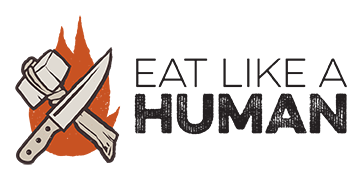There were plenty of reasons why I was unpopular in grammar school. For starters, I was a terrible athlete, attempting and failing to make the basketball team year after year. By eighth grade, the coaches took pity on me after my third try and made me the team statistician. I played the flute in the band, spent lunch breaks immersed in Dungeons and Dragons, and, to top it off, I was overweight and out of shape.
But that wasn’t the only thing setting me apart. In eighth grade, I decided to get in shape and dove headfirst into dietary information from sources like Muscle and Fitness and Men’s Fitness magazines. Armed with my newfound knowledge, I took it upon myself to educate the entire school on nutrition. Yes, this out-of-shape, flute-playing, basketball-statistician, Level 3 Elf Wizard walked around the lunchroom telling classmates they were using too much salt. Unsurprisingly, this didn’t help my popularity. It did, however, catch the attention of the yearbook committee, who immortalized me with the quote, “You are putting too much salt on that food” under my eighth-grade photo.
Nine years in the same school, and that was my legacy.

Here’s the crazy part: I wasn’t trying to be annoying—I really, genuinely cared. Like most people in the 80’s, I was just repeating the mainstream dietary advice. The real issue wasn’t that I was tanking my social standing by pestering my classmates with health tips; it was that most of the advice I was sharing was flat-out wrong!
The Sodium Myth
Telling a bunch of eighth graders to cut down on salt was terrible advice! In reality, salt, along with other electrolytes, is crucial for metabolic health. Electrolytes are minerals that carry electrical charges when dissolved in bodily fluids, allowing signals to travel throughout the body. This enables critical functions like muscle contraction and nerve impulses, essentially making our bodies operate like circuits powered by these charged ions. Sodium is the most abundant electrolyte in the body, and chloride is the second. Together, they play a key role in keeping our bodies functioning. Salt is a combination of both sodium and chloride.

A Personal Lesson from the Desert
I’ll never forget filming episode 4 of The Great Human Race, aptly named Thirst. I asked our medic if he was worried about us getting dehydrated while surviving over a week in the desert. Surprisingly, his bigger concern wasn’t dehydration—it was hyponatremia. This condition occurs when the sodium in your blood drops too low, which can happen if you drink too much water without enough salt. We were filming in Oman’s Empty Quarter, the largest contiguous sand desert in the world, and our medic was more worried about us drinking too much water than too little! His concern turned out to be valid.

As we sweat, we lost both water and essential electrolytes, and my situation was made worse by lingering diarrhea from drinking contaminated water in Ethiopia the week prior. Once we found water, our instinct was to guzzle it down, but doing so could have led to hyponatremia.
The lesson here? Your body needs both water and electrolytes, especially after a workout, time in the sauna, or recovering from an illness.

Do Your Own Research
We’ve never been more disconnected from our food than we are today, and that makes us vulnerable. Relying solely on external sources for dietary guidance disempowers us and puts control in the hands of the industrial food system, which profits from pushing whatever narrative benefits them most. We’ve been lied to about food, diet, and health for decades, and many of these myths still dominate today’s nutrition conversations.
The best advice I can give is to ask questions and find your own answers. Don’t accept anything as absolute truth without digging into the research. For example, if you’re told to cut back on sodium, explore the studies behind that recommendation and decide for yourself if the connection between salt and high blood pressure is as clear as mainstream messaging suggests.
Salt: A Treasure Through History
Consider how salt is essential to life, sought after by animals and humans alike throughout history. Did you know the Kitum Cave in Kenya was carved out over centuries by elephants mining for salt, scraping the mineral-rich walls with their tusks?

Or that salt was once so valuable it was used as currency in ancient Rome, which is where we get the word “salary”?

Wars have even been fought over salt, from the El Paso Salt War to multiple battles over Confederate saltworks in the American Civil War.
Taking Control of Your Health
Taking responsibility for your food choices is key to achieving genuine health. Question everything—whether it’s about reducing salt, avoiding red meat, or eating more leafy greens—and seek out your own answers. Look to the past for guidance and trust your senses.
Light at the End of the Tunnel
We’ll be diving deeper into the importance of salt and how best to incorporate it into your diet in future posts. But for now, I’m excited to share that we’ve partnered with Redmond Salt. We don’t take partnerships lightly, and we’ve turned down numerous affiliate offers over the years to ensure that when we endorse a product, it truly means something.
After spending time at the Redmond Salt processing facilities, mines, and their company headquarters in October 2024, we knew this was a product we could 100% get behind. We had the incredible opportunity to meet with their CEO, eat multiple meals at his home with some of his team, and witness firsthand the integrity and passion that drives their operation. Redmond Salt is not only an exceptional product packed with health-promoting qualities, but the people behind it share our deep commitment to wellness and quality.
Supporting Redmond Salt means supporting not only your health but also the incredible team at Redmond, as well as ours at the Modern Stone Age Kitchen. We’re thrilled to offer you an affiliate link that provides savings on a product we truly believe in and know can positively impact your health and nutrition.
Salty savings for you!
Moving forward, we’ll be using more Redmond Salt in the food we prepare, and you can order directly from them using our affiliate link and receive 15% off when you use the discount code: STONEAGESALT. We’re excited to pass along these savings to you, and we’re confident this product will enhance your well-being, just as it has ours.

Receive 15% off when you use the discount code: STONEAGESALT





 First 3 Steps to Transform Your Diet
First 3 Steps to Transform Your Diet
Do you have any concerns about levels of heavy metals in Redmond Salt?